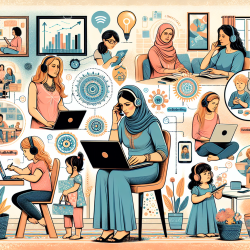The research article titled “I Thought It Was Better to Be Safe Than Sorry” delves into the complex factors influencing parental decisions regarding HPV and other adolescent vaccinations for students with intellectual disabilities and/or autism in New South Wales, Australia. As practitioners in special education, understanding these dynamics is crucial for improving health outcomes for our students.
The Importance of Vaccination in Special Schools
Vaccination coverage among students with disabilities remains significantly lower compared to their peers in mainstream settings. This disparity poses a heightened risk of vaccine-preventable diseases, which can lead to severe health complications. The study highlights that vaccination rates in special schools range from 53% to 66%, compared to 73% to 82% in general school populations.
Factors Influencing Parental Decision-Making
The study identifies two primary themes affecting parental decisions: diverse attitudes towards vaccination and the need for effective education and communication strategies. While many parents are pro-vaccination, others remain hesitant or opposed due to various concerns:
- Vaccine Hesitancy: Concerns about side effects, misconceptions that vaccines cause autism, and fears of traumatic experiences during vaccination contribute to hesitancy.
- Lack of Information: The standard government information packs are often inadequate for families with children in special schools due to low literacy levels and heightened sensitivity regarding medical procedures.
- Misinformation: Some parents hold strong anti-vaccination beliefs fueled by misinformation and mistrust of mainstream medicine.
Strategies for Practitioners
To address these challenges, practitioners can implement several strategies:
- Tailored Communication: Develop accessible information packs that cater specifically to the needs of families with children in special schools. These should address common concerns and provide clear, factual information about the benefits of vaccination.
- Engagement and Education: Facilitate open dialogues with parents to understand their concerns and provide personalized responses. This approach can help build trust and encourage informed decision-making.
- Collaboration with Health Professionals: Work closely with immunization providers to ensure that parents receive consistent and accurate information. Establishing direct communication channels between nurses and parents can also enhance educational impact.
The Role of Schools
Schools play a critical role as intermediaries between health services and families. While educators may not be medical experts, they can support by disseminating accurate information and directing parents to appropriate resources. Encouraging a collaborative environment where teachers feel comfortable discussing vaccination benefits can also positively influence parental attitudes.
Moving Forward
The findings from this research underscore the importance of targeted communication strategies tailored to the unique needs of families in special education settings. By addressing vaccine hesitancy through informed dialogue and personalized education, practitioners can play a pivotal role in improving vaccination uptake among students with disabilities.
To read the original research paper, please follow this link: “I Thought It Was Better to Be Safe Than Sorry”: Factors Influencing Parental Decisions on HPV and Other Adolescent Vaccinations for Students with Intellectual Disability and/or Autism in New South Wales, Australia










